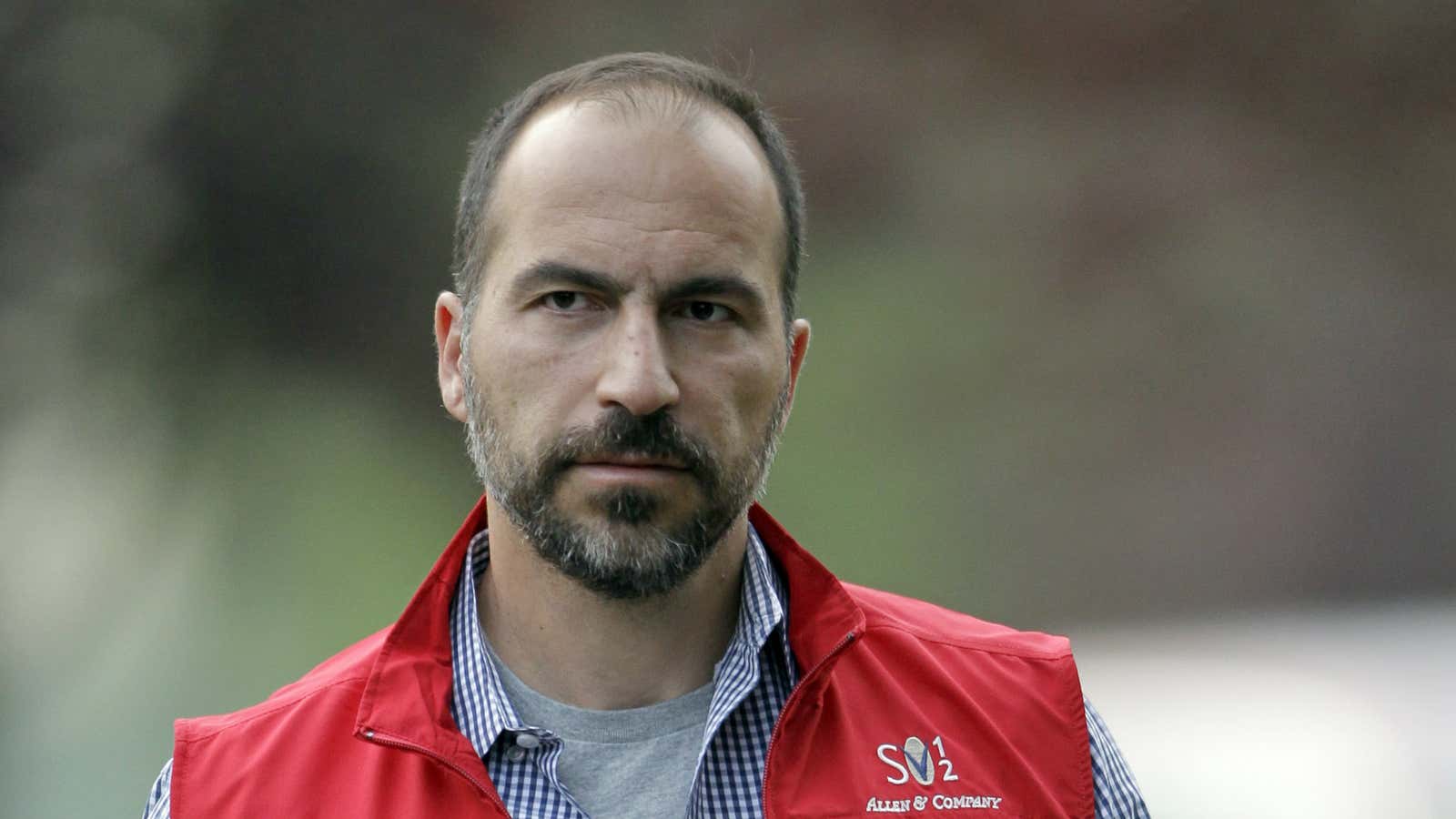Expedia CEO Dara Khosrowshahi told his current staff that he’d be leaving them and taking over Uber in a memo obtained by Recode. In it, Khosrowshahi called the decision to succeed troubled founder Travis Kalanick “one of the toughest decisions of my life.”
“I’ve had the privilege to run Expedia for 12+ years now, and most of you who have been on this journey with me know it has not been easy going,” he wrote, in an acknowledgement of the challenges the travel company has faced amid changes in the industry and technology.
Khosrowshahi also shared a feeling that doesn’t often make it into letters from CEOs to their employees: fear.
I have to tell you I am scared. I’ve been here at Expedia for so long that I’ve forgotten what life is like outside this place. But the times of greatest learning for me have been when I’ve been through big changes, or taken on new roles—you have to move out of your comfort zone and develop muscles that you didn’t know you had.
Vulnerability as a leadership trait has become something of a buzzword in Silicon Valley and beyond. Entrepreneurs pay thousands to attend Summit Series’ networking events celebrating emotional exposure; Uber board member Arianna Huffington’s new venture Thrive Global is based on the radical premise that humans are, in fact, fallible mortals who need sleep and occasional breaks from work. Kalanick himself admitted that a deficit of vulnerability—or, more accurately, its close cousin humility—hindered him as a leader and ultimately hurt the company. Yet far too often people in positions of power confuse humility with humblebrags, acknowledging the difficulty of a challenge only once success is achieved. It’s disingenuous and inauthentic.
What Khosrowshahi did in his letter is different. He’s taking over a troubled operation with legal problems, contentious relationships with its drivers, and a former CEO who may have a hard time relinquishing his grip on the company he founded. Success is far from assured. Anyone not daunted by such a challenge is either lying or delusional.
Khosrowshahi’s disclosure makes clear that he’s neither. A Bloomberg profile describes him as “a man of principle with little ego,” admired for trustworthiness. At Expedia, Khosrowshahi was frank about performance in quarterly reports. “He is sincere, respectful, highly respected and a straight talker,” a former Expedia employee is quoted as saying.
Such transparency can pay off, as Starbucks CEO Howard Shultz once explained. “The hardest thing about being a leader is demonstrating or showing vulnerability,” Shultz told journalist Andy Serwer of Fortune in 2008, after a trying spell at the company. “When the leader demonstrates vulnerability and sensibility and brings people together, the team wins.”
